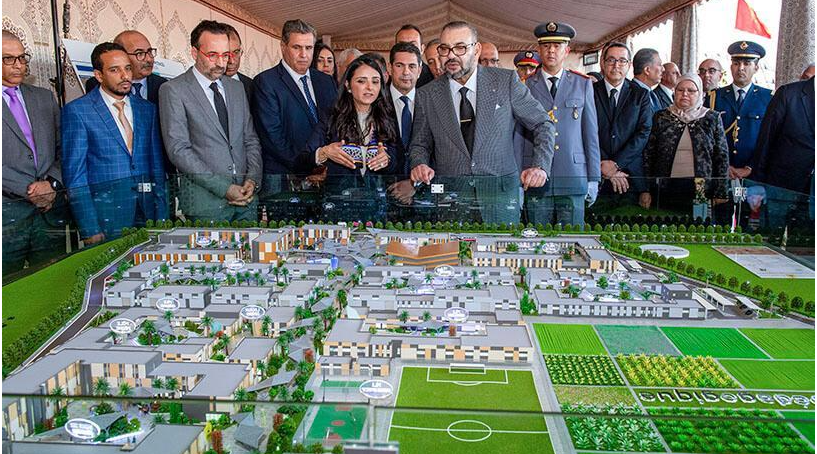The authorities in Morocco are launching a master’s training programme focusing on “smart city strategies in Africa” to help accelerate the digital transformation of the major cities of the Kingdom of Morocco, such as Casablanca, Tangier and Marrakech.
This master’s degree in smart cities is organised in partnership with the Federal Polytechnic School of Lausanne in Switzerland.
The courses, intended mainly for African students, particularly Moroccans, will take place on the campus of the Mohamed VI Polytechnic University (UM6P) in Ben Guerir, 257 kilometres from the capital Rabat.
Read also: Smart Cities Egypt is leading the way in Africa in terms of adoption
Smart City Learning features
The courses will be centered on eight modules, including connectivity and digital governance, open data and artificial intelligence (AI).
“This training combines the fields of engineering as well as social and human sciences related to the smart city in Africa. Indeed, smart cities require skills that are somewhat different from those of conventional urban planning. It will therefore be necessary to massively train engineers and strengthen their skills in the field of digital and urban systems so that they are capable of managing this technological minefield that is crucial for the construction of smart cities and therefore for development on the continent,” explains Jérôme Chenal, Professor of Urban Planning at the Swiss Federal Institute of Technology in Lausanne.
Morocco’s ecological transition
Morocco is increasing its efforts in ecological transition.
The kingdom organized Its first Smart City Expo in Casablanca in 2017, which carried out a series of citizen activities that took the concept of smart city to the very heart of the Moroccan city, with the aim of promoting a new model of sustainable urban and social management and development.
The second edition of the event, which took place from May 17 to 18 of the same year, sought greater dissemination with a strong social focus through activities for the local population.
The third edition was held April 18–20, 2018, in Casablanca, under the high patronage of King Mohammed VI. The program, titled “Liveable Cities and Urban Social Innovation,” included speeches made by 85 participants, as well as conferences led by city representatives, government officials, international organizations, and research centers. The Expo consisted of two major events: “Smart City Expo Casablanca”, for professional debates on the development of smart cities in Africa, and “Smart City Connect Casablanca,” an open event to raise general public awareness of the issues surrounding smart cities.
The fourth edition of the Smart City Expo was in 2019, The congress programme features over 80 speakers and moderators and is structured in 4 core themes -sustainability and resilience; mobility and urban planning; collaborative cities and citizen engagement; and technology and green development.
In Casablanca, the participants of this event focused on the implementation of the United Nations Sustainable Development Goals (SDGs) and addressed several themes, such as AI as a potential for improving the quality of services in urban areas.
Moreover, since October 2015, Casablanca has been the first African agglomeration to have joined the network of 25 smart cities selected by the Institute of Electrical and Electronics Engineers (IEEE) based in the United States of America.
Since then, the Moroccan economic capital has been accelerating its digital transformation, notably through the installation 2016 of an urban video surveillance system. This system, consisting of 760 surveillance cameras connected to 220 kilometres of fibre optics, enables the municipality to improve road traffic in real time and reinforce security in commercial buildings.
Smart Africa opens the first Digital Skills Academy in Côte d’Ivoire
The smart city objective
According to Moroccan authorities, the objective is to present safe city models, which set up digital devices to strengthen safety in town, but also collaborative cities, which encourage social and cultural innovation.
Smart City Casablanca aims to develop Casablanca’s infrastructure, sustainable mobility, living environment, and ecology through the “Casablanca 2015-2020″ development plan, which strives to make the city smart and sustainable.
All the editions of Smart City Expo themes centered on “Cities by All” and covered topics like resilience and climate change, urban innovation and technology, future mobility, and collaborative society.
15,000 people attended the editions, including 160 local and international delegates, 112 journalists, 85 speakers, and 73 presenters from four continents.




